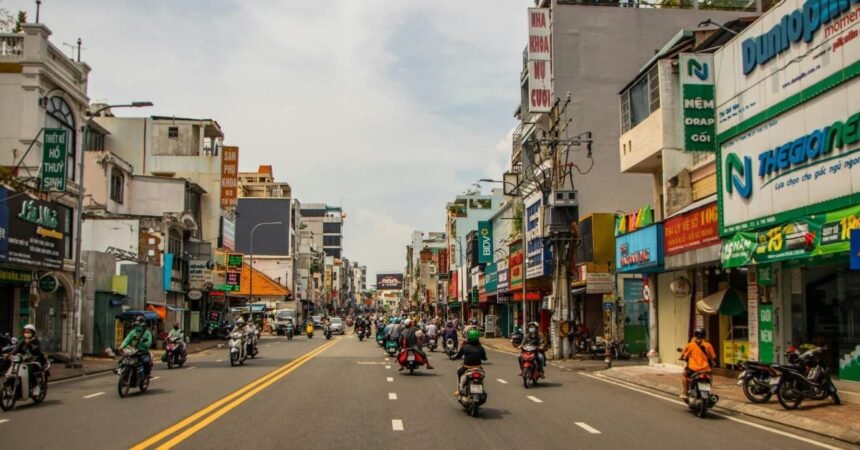Vietnam is making significant strides in cleaning up its streets and reducing noise pollution. Starting in the summer of 2026, the downtown areas of Hanoi will implement a ban on all gasoline-powered motorcycles as part of an effort to decrease emissions. This initiative is a crucial step towards achieving the country’s goal of phasing out gas-powered two-wheelers entirely by 2045.
The ban will initially cover the Hoan Kiem and Ba Dinh districts within Ring Road 1, areas known for heavy traffic congestion and high pollution levels. By eliminating gasoline-powered motorbikes, officials hope to reduce noise, smog, and carbon emissions while encouraging residents to opt for cleaner electric alternatives. The plan is set to expand to include more districts in the following years and may eventually encompass gasoline-powered cars as well.
While electric motorcycles and scooters are gaining popularity in Vietnam, they currently only represent about 5% of the market. Homegrown companies like VinFast and Selex Motors are leading the way in the electric two-wheeler industry, with initiatives such as battery-swap stations and affordable electric scooters. As the ban on gasoline-powered vehicles takes effect, electric models are expected to become more prevalent, supported by government incentives and improved charging infrastructure.
Despite the positive impact of transitioning to electric vehicles, there are challenges to overcome, including range anxiety, high upfront costs, and a lack of charging stations. However, with increasing regulatory pressure and the decreasing cost of electric models, the shift towards electric transportation in Vietnam appears inevitable.
The ban on gas-powered motorcycles in Vietnam not only benefits local air quality but also sets a precedent for other developing countries in Southeast Asia. By successfully implementing this initiative, Vietnam could serve as a model for electrifying personal transport in densely populated urban areas. The rapid transition to electric vehicles presents an opportunity to improve air quality, reduce noise pollution, and enhance overall quality of life in major Vietnamese cities.
As the country moves towards a greener transportation system, it will be crucial to address challenges such as the financial burden on residents and the timeline for transitioning millions of motorcycles to electric. By closely monitoring the progress of this initiative, we can gain insights into how other countries can replicate similar measures to achieve sustainable urban transport solutions.







